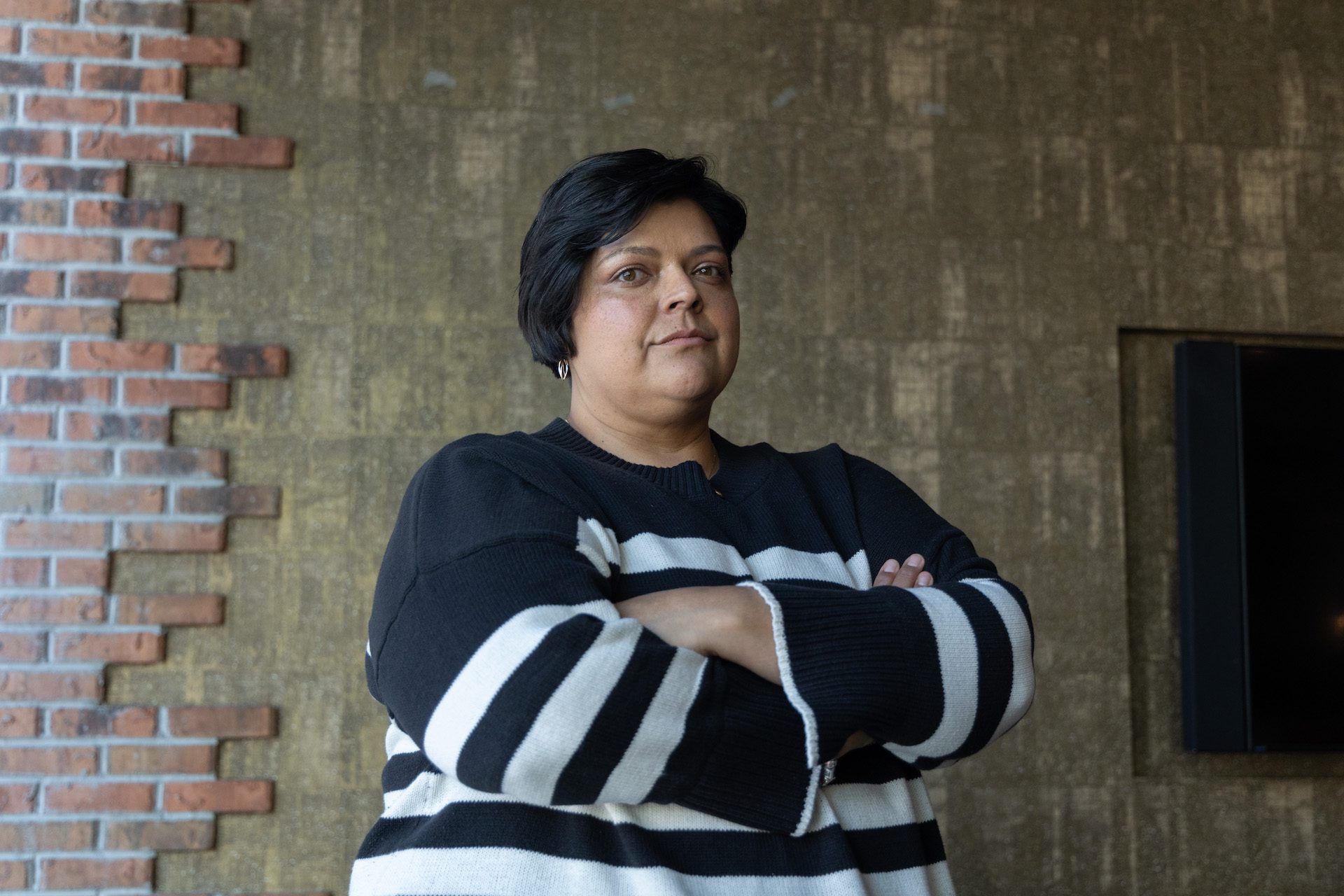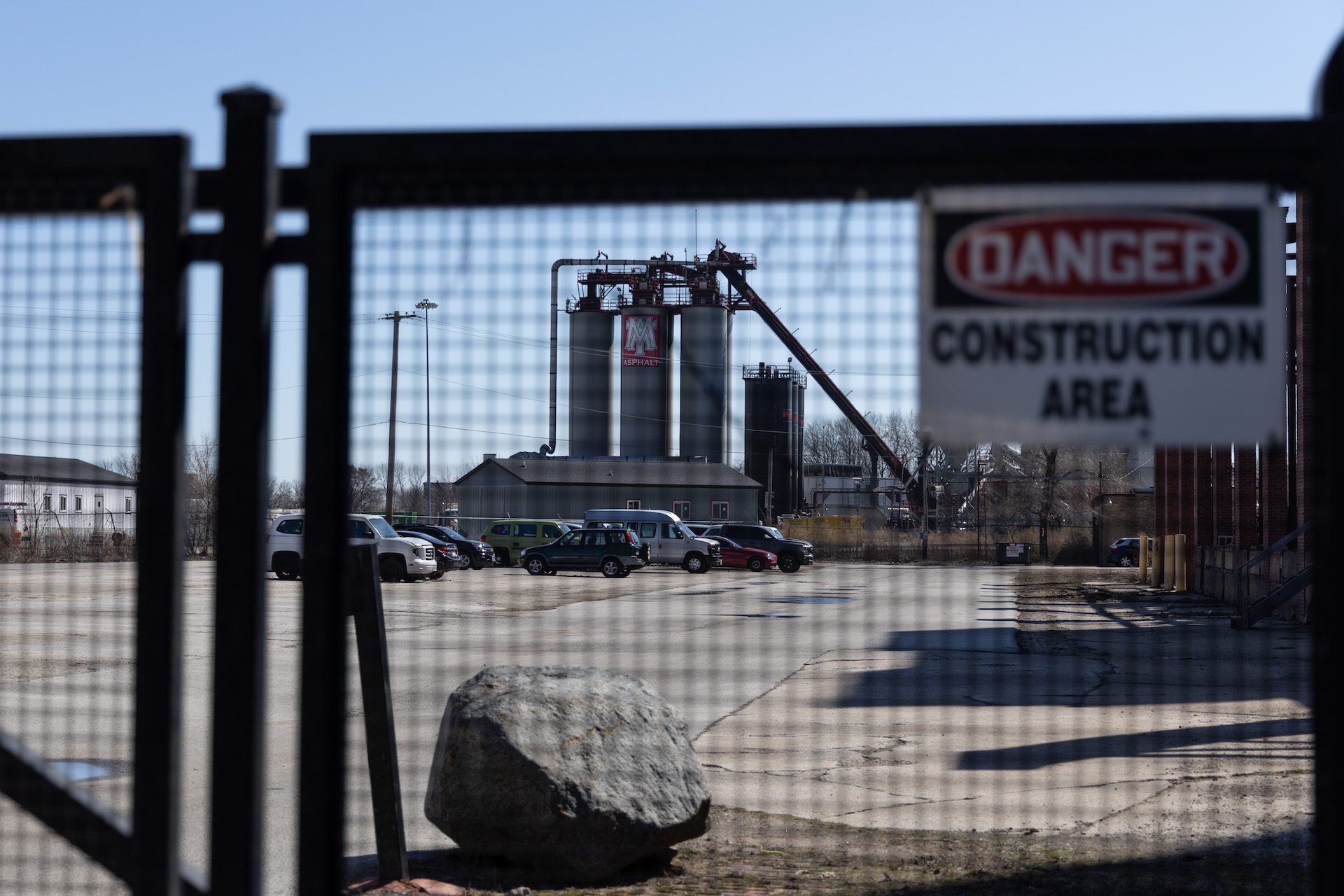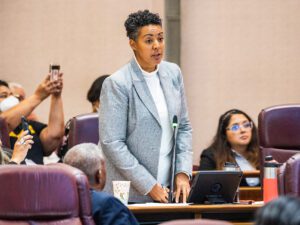 Oscar Gomez/Borderless Magazine
Oscar Gomez/Borderless MagazineThe hearing comes as environmental justice advocates grow impatient with the city’s unfulfilled promises to install 140 air pollution sensors and pass a cumulative impacts ordinance to protect communities overburdened by pollution.
As pressure from activists mount, the Chicago Department of Public Health (CDPH) will discuss its environmental enforcement efforts next week before the city council’s Committee on Environmental Protection and Energy.
The hearing, hosted on Wednesday, April 2, comes as environmental justice advocates demand the city roll out a stalled air monitoring program and pass an ordinance to protect residents disproportionately impacted by environmental burdens.
“We are in touch with a lot of community groups and organizations who are trying to ask the city for help in improving conditions, especially in sacrifice zones and our [environmental justice] communities,” said Ald. Maria Hadden (49th), Committee on Environmental Protection and Energy chair. “Our department of public health is the space for most of that work and where the city is accountable for most of that work.”
News that puts power under the spotlight and communities at the center.
Sign up for our free newsletter and get updates twice a week.
CDPH is the city’s primary environmental regulator, but some enforcement responsibilities are expected to be transferred to the recently formed Department of the Environment. The city’s public health department issues operating permits, conducts inspections and issues citations for environmental ordinance violations.
Olga Bautista, the executive director of the Southeast Environmental Task Force, hopes CDPH officials discuss plans to deploy 140 air pollution sensors soon to assess air pollution levels across the city. Chicago’s air quality is among the lowest in the U.S., with the city’s South and West Sides seeing some of the worst air pollution in the nation.
The monitors were expected to be installed early this year, but the program was delayed when Raed Mansour, a key city official leading the project, was pushed out last fall, the Chicago Sun-Times reported. Mansour was the department’s director of environmental innovation and was instrumental in the city’s efforts to plant more trees and identify urban heat islands.
During the hearing, Bautista hopes to hear a commitment from CDPH Commissioner Dr. Olusimbo Ige to collaborate more with environmental justice groups to address environmental issues that disproportionately burden communities of color.
“To get to the bottom and the root causes of these issues, we have to have a years-long commitment from the Commissioner,” said Bautista. “We would like to have more regular meetings and access to Dr. Ige because I think we could accomplish so much when there is trust built between the commissioner and the community so that we could help inform on different policies and processes.”
Read More of Our Coverage
In an email statement, CDPH said the sensors needed to be calibrated, which they expected to be completed this spring “during warmer temperatures as recommended by technical experts.”
The sensors will provide hyperlocal air pollution estimates so residents can better understand the environmental conditions in their neighborhoods. However, regulation and enforcement will continue to be based on federal reference monitors located throughout the city.
The Chicago Air Sensor Network Advisory Board will solicit input from community members and subject matter experts on where to install the sensors, according to a CDPH spokesperson.
In response to advocates’ criticisms about the department’s lack of collaboration with environmental justice groups, Grace Adams, a CDPH spokesperson, said community input was “integral for the development and design of the public data visualization platform and educational materials and training.”
Alfredo Romo, the executive director of Neighbors For Environmental Justice (N4EJ), said he looks forward to learning about the department’s capacity, especially amid federal funding freezes and its potential impact on environmental efforts like installing air monitors.
“I think it’s important for us to see if these hearings can actually help us connect to city departments that are supposed to be responsible for protecting the health of our community,” said Romo. “We’re trying to understand why that [enforcement] division has a hard time in addressing [environmental] issues, and at this point, environmental grievances from many of these communities.”
CDPH saw some of the largest departmental budget cuts this year as pandemic relief funds expire. According to reporting by the Better Government Association, the reduction represents a $150 million cut from the previous year’s budget.
Romo hopes the department explains how it plans to address findings from an assessment concluded in 2023 that identified neighborhoods in Chicago that face cumulative environmental burdens, including his neighborhood of McKinley Park.

CDPH partnered with environmental justice groups to conduct the cumulative impact assessment after a U.S. Department of Housing and Urban Development investigation into the city’s zoning and land use policies. It found the policies to be environmentally discriminatory against communities of color in the South and West Sides.
Under a settlement agreement with the federal government, the city must pass an ordinance that changes some of the city’s zoning and land use policies that disproportionately impact the aforementioned communities. The city could risk losing hundreds of millions of dollars in federal housing and urban development funds if it does not address the issues found in the investigation.
Hadden said she doesn’t anticipate discussing a so-called “cumulative impacts ordinance” in depth at the hearing since it pertains more to the Department of the Environment.
The Committee on Environmental Protection and Energy plans to hold hearings on single-use plastics and next steps on Peoples Gas’ pipeline replacement program this spring.
Residents can submit questions and comments for the hearings by emailing the Committee of Environmental Protection and Energy. Residents can also receive updates on the committee by signing up for Hadden’s city council updates newsletter.
Correction: A previous version of the story stated the meeting was happening Thursday The hearing is taking place on Wednesday.
Aydali Campa is a Report for America corps member and covers environmental justice and immigrant communities for Borderless Magazine. Send her an email at [email protected].


